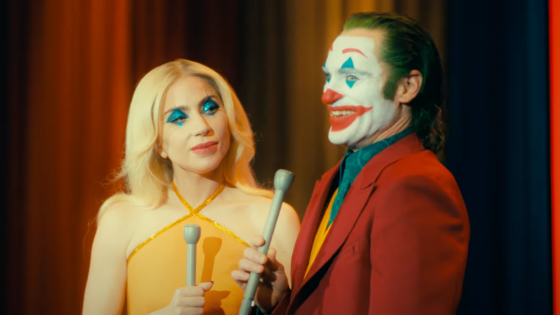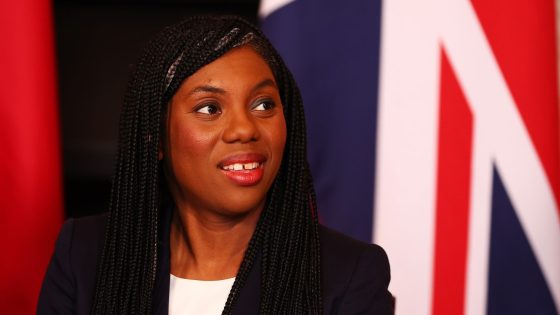In 2019, “Joker” became an improbable box office smash and cultural juggernaut.
Sure, the R-rated crime drama was based on the ubiquitous Batman villain. But this take on the Clown Prince of Crime was darker and more disturbing than your average comic book adaptation — more akin to Martin Scorsese’s “Taxi Driver” than the DC anti-hero adventure “The Suicide Squad.”
Directed by Todd Phillips and starring Joaquin Phoenix, “Joker” beat the odds (and controversy over security concerns) to generate $1.07 billion in worldwide ticket sales against a trim $55 million budget. After the Warner Bros. release became one of the most profitable superhero movies in history and earned 11 Oscar nominations, a sequel was all but destined.
Yet the second film, “Joker: Folie à Deux,” which opens in theaters on Friday, may not get the last laugh.
The follow-up, bringing back Phoenix as Arthur Fleck and introducing Lady Gaga as his accomplice Harley Quinn, is tracking to collect $50 million to $65 million from 4,100 North American theaters in its box office debut. It’s a steep drop from the first film, which launched to a stellar $96.2 million during the same weekend in 2019 and set an October opening weekend record. As for “Folie à Deux,” those projected ticket sales aren’t exactly a cause for concern, but they are something of a disappointment given the blockbuster success of the original. The sequel carries a substantially larger $200 million price tag.
“Joker 2” is expected to perform far better at the international box office with estimates of $80 million to $85 million over the weekend. With those forecasts, the film could end up with anywhere from $130 million to $150 million globally by Sunday.
On paper, “Joker: Folie à Deux” has the makings of another certified sensation. Phoenix is reprising his Oscar-winning role, starring alongside an actor who is known for committing as intensely to her craft — and who happens to be one of the biggest pop stars on the planet. However, industry experts believe the sequel’s premiere at Venice Film Festival ended up tampering some of the buzz and contributed to softer-than-expected box office projections. It makes sense that Warner Bros. wanted to bring “Folie à Deux” back to the Lido after “Joker” took home the fest’s top prize five years ago. Yet critics and festival attendees weren’t as enthusiastic about the sequel, leading to weeks of “meh” word-of-mouth before general audiences could see the movie. Critics were mixed on the original film as well — “Joker” landed a 69% on Rotten Tomatoes while “Folie à Deux” is currently at 63% — so it’s possible that curiosity will again inspire moviegoers to turn out in force in order to judge the movie for themselves.
“Joker” served as a moody and grisly origin story for Batman’s notorious foe, who is portrayed in this cinematic universe as a reclusive, struggling stand-up comedian and part-time clown. In the sequel, co-written by Phillips and Scott Silver, Joker meets his demented muse, Harley Quinn, while serving time for murder at Arkham Asylum. Zazie Beetz also returns as Arthur’s former neighbor while Brendan Gleeson and Catherine Keener join the cast. Though the movie has been called as a musical, Phillips has said that categorization isn’t entirely accurate, though the story features several song and dance numbers.
“Most of the music in the movie is really just dialogue,” the director told Variety. “It’s just Arthur not having the words to say what he wants to say, so he sings them instead.”
Though “Joker 2” isn’t this weekend’s only newcomer, the comic book sequel will easily tower over domestic box office charts. Also new to theaters is Lionsgate’s “White Bird,” billed as a prequel and sequel to 2017’s sleeper hit “Wonder,” starring Jacob Tremblay. It’s aiming for single digits over the weekend. It’s a notable decline from “Wonder,” which opened to $27 million and powered to a sizable $132 million domestically and $314 globally by the end of its run.
Marc Forster directed “White Bird,” which doesn’t focus on Tremblay’s character Auggie from “Wonder” but instead his middle school bully Julian, who was portrayed by Bryce Gheisar. In the present day, Julian is ostracized for his treatment of Auggie, so his grandmother tries to help him turn his life around by telling him about her childhood as a young Jewish girl during the Holocaust. In Variety’s review, Dennis Harvey wrote that “storytelling here transcends a juvenile tenor to achieve all-ages appeal.”
Despite the potential for broad commercial prospects, “White Bird” is shaping up to be the latest in a string of underperforming Lionsgate releases following last weekend’s “Megalopolis,” survival thriller “Never Let Go,” assassin comedy “The Killer’s Game” and video game adaptation “Borderlands.”
Source Agencies


